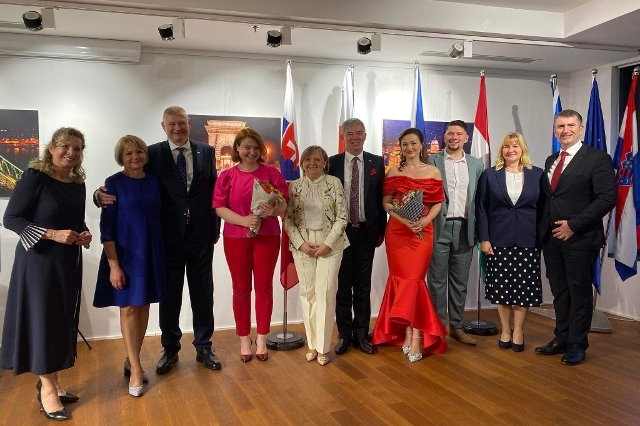
Financial Times: Czech foreign minister rebuffs Macron’s EU overhaul push
11.10.2017 / 19:36 | Aktualizováno: 11.10.2017 / 19:39
Financial Times (ft.com) | 11.10.2017
Bloc must focus on cutting wealth gap between east and west, says Lubomir Zaoralek
EU member states should focus on making the union work better rather than pursuing deeper integration, the Czech Republic’s foreign minister has warned, in a rebuff to a push by Emmanuel Macron to overhaul the bloc’s governance.
The French president set out a host of reforms two weeks ago that he said would help the bloc revitalise its economy, in what was widely seen as the most integrationist speech by a French leader since the creation of the euro.
His intervention followed Jean-Claude Juncker’s September address on the state of the EU, in which the president of the European Commission called for tighter integration based around the eurozone and Schengen open-border system.
However, many countries in central and eastern Europe are wary of deeper centralisation. In an interview in Prague, Lubomir Zaoralek said the EU should instead focus on reducing the economicgap between its wealthy west and poorer east, which remains stark more than a decade after the bloc’s 2004 eastern expansion.
“People speak about integration. That is just a nice general word. I think we should focus more on the common efficiency of Europe, on convergence, on cohesion,” he said.
Two problems — low wages and capital drain — are interconnected and divide our continent into a Europe of profit takers and a Europe of cheap workers Lubomir Zaoralek, Czech foreign minister
Among Mr Macron’s proposals was the creation of a common budget for the eurozone, funded by corporate tax receipts and supervised by a finance minister.
But although it was “very good and very important” that Mr Macron wanted to improve Europe’s situation, the French president was too focused on developing institutions, according to the Czech foreign minister.
“I don’t think that is the biggest problem we have,” said Mr Zaoralek. “We could progress in this way... and set up a ministry of finance for the eurozone. But when the crisis comes, will the French finance minister obey the finance minister of the eurozone?”
He was also sceptical of the Czech Republic’s prospects of joining the single currency soon, despite Mr Juncker’s call in his September speech for EU member states that had not yet adopted the euro, including Poland, Hungary and the Czech Republic, to do so. There was “no political agreement” in Prague on when to join the currency union, said Mr Zaoralek. But he would back such a move once the gap between Czech and eurozone wages was smaller. Meanwhile, he said, the Czech Republic should seek observer status in the currency bloc.
“The objective would be to have deeper co-operation with euro area countries, to have higher mutual trust, to be able to participate and engage actively in the debate on the future shape [of the eurozone], and also facilitate the preparations of the Czech Republic for [joining] later,” he said.
As well as being foreign minister, Mr Zaoralek is the Social Democrats’ prime ministerial candidate in parliamentary elections due in the Czech Republic next week.
Despite emerging as the largest party after the 2013 elections, the Social Democrats are trailing their junior coalition partner ANO, the upstart party founded and led by billionaire Andrej Babis, in opinion polls.
A recent survey put ANO’s support at 27 per cent and the Social Democrats’ at 13.5 per cent, with other parties trailing the two frontrunners. However, the poll was carried out before Mr Babis was charged by police earlier this week in connection with a probe into a Kc50m (€1.9m) project subsidy. Mr Babis said the move was politically motivated and has denied any wrongdoing.
In an effort to recover ground, Mr Zaoralek has put boosting pay at the heart of his campaign, proposing to lift the minimum wage and public sector salaries and introduce a more progressive corporate tax system. Many big west European groups operate in the Czech Republic and take advantage of the low wage costs to pay big dividends to parent companies.
“The statistics we have show that each year up to Kc300bn ($13.6bn) — so up to 9 per cent of GDP — goes out of the country,” he said. “These two problems — low wages and capital drain — are interconnected and divide our continent into a Europe of profit takers and a Europe of cheap workers. This is the main problem that we see for [our] country. We don’t want to be this low-cost economy.”






